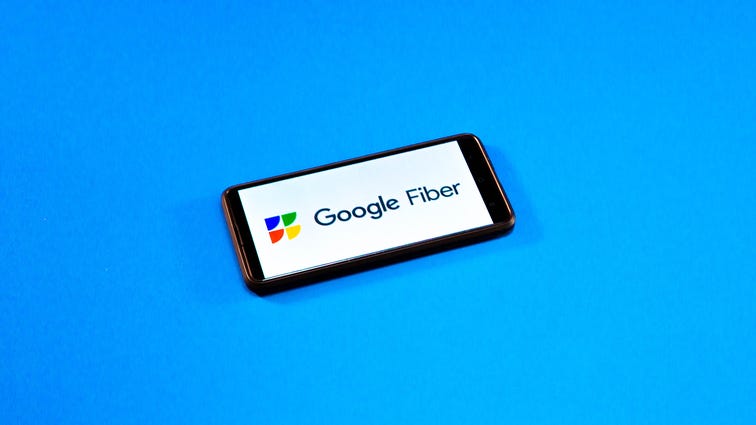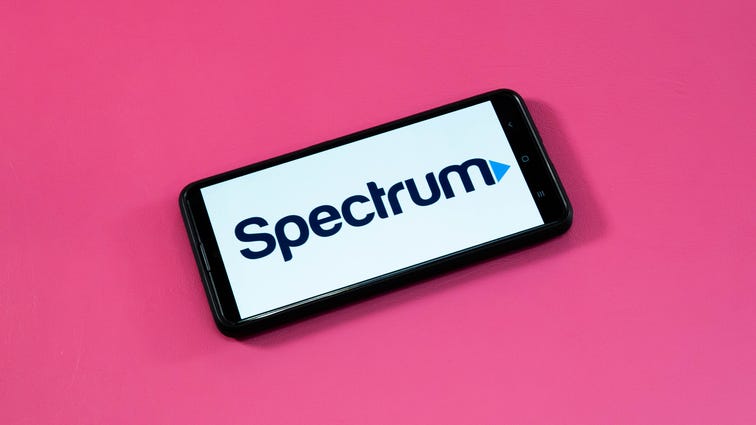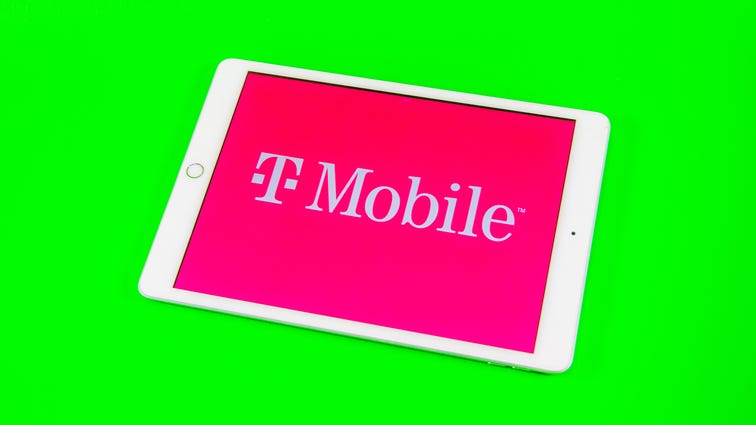Forget about keeping Austin weird. Let’s talk about keeping Austin fast. I’m talking about one of the top five fastest cities in the country for internet speed kind of fast.
The speed-testing site Ookla keeps track of the top cities in the US for median download speeds, based on millions of tests run daily by the company. In Ookla’s first quarter 2022 report, Austin, which is the country’s 28th most populous metro area, ranked as the fourth fastest city in the country, registering a median download speed of 208.93 megabits per second. That was good enough to place ATX well ahead of its big-city Texas brethren of Dallas and Houston.
One thing to note about those speeds: Austin gets a boost from the fast fiber options to be found within city limits, including AT&T and Google Fiber, and the wide availability of the consistent cable connection provided by Spectrum. But if you venture out beyond Travis County, to Round Rock, Georgetown, or some rural areas east of Austin, you won’t see anything close to those median speeds. Apart from last-resort satellite options like HughesNet and Viasat, there are some regional fixed wireless solutions, as well as the option to join the 5G home internet movement, though availability is limited more closely to the Austin-Round Rock-Georgetown hub.
All of that means that you’ve got plenty of internet options to sort through in the Austin area. Whatever those options may be at your address, we’re here to help you comb through your choices. Here’s what you need to know about the best internet service providers in Austin.

Sarah Tew/CNET
- Price range: $70 to $100 a month
- Speed range: 1,000 to 2,000Mbps
- Highlights: Unlimited data, no contracts, equipment included
Admittedly, this was a tough call. AT&T has greater availability in the Austin metro area, and its fiber plans offer a greater diversity of options — from 300Mbps to as high as 5,000Mbps. But not all Austin residents are serviceable for AT&T Fiber. Many still have to deal with AT&T’s DSL service, an inferior product whose download speeds max out around 100Mbps, and in some areas, tops out at only around 25Mbps.
Conversely, if you have access to Google Fiber, you know exactly what you will get — 100% fiber-optic internet service with symmetrical download and upload speeds. Google Fiber features only two plans — 1,000Mbps and 2,000Mbps — but each has fast internet speeds, no data caps, no contracts and no additional equipment rental fee. If you’re looking for a cheap internet option, Google Fiber may not be your top selection. Still, in terms of value, Google Fiber stands tall: The gigabit plan at $70 a month has an affordable cost per Mbps of seven cents, while the two gig plan boasts an even better 5 cents per Mbps.
As for where you can find Google Fiber in Austin, your best bet is in the heart of ATX, including the South Lamar, South Congress and East Austin neighborhoods. But service is also beginning to extend towards the north portion of the city, including the Allandale, Mueller, North Loop and North Shoal Creek neighborhoods.
Read our Google Fiber home internet review.

Sarah Tew/CNET
- Price range: $50 to $115 a month
- Speed range: 200 to 940Mbps
- Highlights: Simple pricing, no contracts, no data caps, free access to nationwide Wi-Fi hotspots
- Special offers: Bundle discounts, free Peacock Premium for up to 12 months
Charter Communications’ broadband service covers a large swath of the Austin city limits and beyond, including down into Kyle and Dripping Springs and up north into Pflugerville, Round Rock and Leander. That’s especially helpful if you plan to move within the area and don’t want the hassle of setting up with a new service provider. The company’s home internet service also includes the modem in the monthly costs (though you’ll need to add $5 a month if you want a Wi-Fi router).
Also in Spectrum’s favor is its straightforward approach. No matter where you’re located, you’ll have three plan options — 200, 400 or 940Mbps download speed — and no fear of additional fees from overage charges since there are no data limits. While its upload speeds top out at 35Mbps, which falls well short of what fiber internet can achieve, Spectrum’s reliability, compared to the more spotty DSL and satellite internet services that are also prevalent in the area, is tough to overstate.
Read our Spectrum home internet review.
Spectrum Internet

Sarah Tew/CNET
- Price range: $50 a month ($30 for eligible T-Mobile Magenta MAX customers)
- Speed range: 33 to 182Mbps
- Highlights: No data cap, no contracts, all-inclusive price (no additional fee for equipment or extra charges)
- Special offers: 15-day Test Drive, Price Lock guarantee, free one-year subscription to Paramount Plus, 50% off YouTube TV for a year (for eligible Magenta Max customers)
T-Mobile and Verizon have been pushing hard for their 5G internet services, but T-Mobile Home Internet gets the nod here for the Live Music Capital of the World. A MoffettNathanson report from April used Comlinkdata to surmise that approximately a third of T-Mobile Home Internet subscribers are from rural areas, even though less than 10% of the company’s current footprint is rural. So, T-Mobile Home Internet, in just over a year of business, is becoming a viable option for many where DSL or satellite had been the only choices.
While you’ll find the Austin area included in T-Mobile’s coverage list for Texas, you’ll still need to confirm it’s serviceable at your location. You can plug in your address (or your mobile phone number, if you’re already a T-Mobile customer) on the T-Mobile Home Internet site to find out if it’s available for you.
Read our T-Mobile Home Internet overview.
Internet providers in Austin overview
| Astound Broadband/Grande | AT&T | Google Fiber | Rise Broadband | Spectrum | |
|---|---|---|---|---|---|
| Internet technology | Cable | DSL/fiber | Fiber | Fixed wireless | Cable |
| Monthly price range | $26-$50 | $55-$180 | $70-$100 | $25-$75 | $50-$115 |
| Speed range | 300-940Mbps | 10-5,000Mbps | 1,000-2,000Mbps | 25-50Mbps | 200-940Mbps |
| Monthly equipment costs | $12 (skippable) | None | None | $10 modem; $5-$15 router (skippable) | Free modem; $5 router |
| Data cap | None | None | None | 250GB or Unlimited | None |
| Contract | None | None | None | None, but required for some promotions | None |
| CNET review score | N/A | 7.4 | 7.4 | 6.2 | 7.2 |
Are there additional internet providers in Austin?
There are a number of broadband options for those living in the Austin-Round Rock-Georgetown metro area. Beyond the top three picks we highlighted above, you can find quite a mix of choices, though a few are available only on the outskirts of the surrounding counties.
- Astound Broadband/Grande: You’ll find some of the most competitive starting rates in Austin from this cable internet provider. Astound’s cheapest plan is $26 a month for 300Mbps download speed. That’s a very affordable 9 cents per Mbps. While you can find a less expensive option in the area — Rise Broadband’s $25-a-month offering, for example — that plan features download speeds of only 25Mbps, which equates to a much higher cost per Mbps of $1. Astound’s gig plan is also the cheapest you can find in the city, starting at $50 a month, and comes with a free year of HBO Max. The catch? A pretty steep increase awaits customers. According to Astound’s rate card, your rate could almost triple after a year (from $26 to $78 a month for the 300Mbps plan). Granted, you’re not under a contract, so you have the freedom to try to negotiate a better deal or simply bail to a different provider. But you should definitely be aware of that looming increase.
- CenturyLink: You won’t find this ISP within city limits. You’ll have to travel north of Austin to the suburb of Hutto to find service. While a majority of addresses may have to settle for CenturyLink’s DSL service (which can range from 20 to 100Mbps), others may be fortunate to be eligible for the company’s affordable fiber product, Quantum Fiber, which offers 200 to 940Mbps for $49 to $65 a month.
- Evolve Broadband: This regional provider won’t be found within city limits, but its LTE fixed wireless service caters to rural customers in the outskirts of the Austin metro area, including to the south and southeast in Bastrop, Cedar Creek, Dale and Lytton Springs and west of the city in McDade and Paige. You can expect 10 to 35Mbps download speed with this cellular service, which Evolve breaks down into three data plans — Bronze (10GB per month for $40), Silver ($50 a month for 30GB) and Gold (60GB a month for $75) with the opportunity to buy additional gigabytes of data on each plan.
- Frontier: If you’re located within Austin city limits, Frontier is not for you. But its mix of DSL and fiber-optic service is a prime option for residents of Georgetown to the north and Dripping Springs and Kyle just south of the city. Be sure to check the site to see if Frontier FiberOptic is available at your address. Featuring symmetrical plans of 500Mbps, gigabit or 2Gbps speeds, the company’s fiber service is a compelling option, ranging in price from $50 to $150 a month.
- Kinetic by Windstream: You’ll find this DSL and fiber provider only in a small pocket of Austin near Balcones District Park and north of the city in eastern Round Rock. If you’re serviceable for the company’s fiber-optic plans, it’s worth some exploration, but keep looking if you can only get its DSL service.
- Optimum/Suddenlink: Suddenlink is the name that many in the Austin area might know. But its parent company, Altice USA, recently announced plans to rename it Optimum very soon. In the meantime, Suddenlink service is very lightly scattered in the metro area — mostly around the Austin Recreation Center and near Barton Creek Wilderness Park — but is more concentrated north of ATX in Pflugerville. This cable ISP boasts aggressively competitive starting rates and decent signing perks, including Visa gift cards and free months of HBO Max.
- Ranch Wireless: This VTX-1 wireless provider to south-central Texas services a few towns on the outer reaches of the Austin metro area, including Bastrop, Cedar Creek, Dale, Elgin, Lockhart, Mustang Ridge and Uhland. Customers can expect to see residential plans that range from $30 a month for 1Mbps download and 30GB of data, to $120 a month for 25Mbps and unlimited data.
- Rise Broadband: One of the country’s top fixed wireless solutions for rural areas. This provider is a viable option for residents living in east Austin, stretching out to the towns of Manor and Elgin, as well as points north of the city, including portions of Georgetown, Pflugerville, Round Rock and Taylor. Speeds can get as high as 50Mbps and there are unlimited data options as well, so if your choice is between satellite and Rise Broadband, this should win out.
- SOS Communications: Another regional fixed wireless provider, SOS extends the majority of its coverage area just beyond the Austin metro area, but serviceability ranges down into Georgetown and Hutto as well as to the west of Austin in Elgin. Customers must provide their own router, but SOS is set apart from other regional wireless providers because there’s no contract required and no data caps on any of its wireless plans. Available speeds range from 10-100Mbps.
- TexasData: This local ISP offers a fixed wireless solution for customers in the Texas Hill Country west of Austin. It caters to areas unable to get cable or DSL services. Monthly plans cover speeds from 2Mbps to 20Mbps, with prices ranging from $40-$200 a month.
- Verizon 5G Home Internet: Availability for Verizon’s 5G fixed wireless home internet product is continuing to expand to more areas. It has a higher average download speed (300Mbps) than T-Mobile Home Internet and boasts a similar all-in price that includes equipment rental, installation fees and taxes for $50 a month (and eligible Verizon Wireless customers can get a 50% discount to drive that down to $25 a month). So why’d we list T-Mobile higher? Verizon’s coverage still tends to lean strongly towards metro areas, due to its strict utilization of its Ultra Wideband 5G technology — whereas T-Mobile also uses its 4G LTE network to increase availability. If you’re within the Capital City limits, you should explore this option, but many others will find it outside their grasp.

Visions of America/Universal Images Group via Getty Images
Are there additional details about Austin home internet to know?
After our overview of the internet service providers available in Austin, you may have some more specific questions about the internet plans you can get in the Capital City. Specifically, let’s dive into more about the cheapest internet plans you can find, as well as the fastest internet options available.
Pricing for Austin home internet service
The average starting price for internet service in Austin — taking into account the promo prices, not the elevated regular rates — is approximately $43 per month, which puts ATX right near the median of the other markets CNET has covered to this point, including Brooklyn ($36 a month), Los Angeles ($38 a month), San Francisco ($40 a month), New York City ($41 per month), Charlotte, Chicago, San Diego and St. Louis (all around $50 a month).
Currently, the lowest starting price you can find in Austin belongs to Rise Broadband, which has a 25Mbps plan starting at $25 a month. Impressively, the standard price only jumps up by $10 after the first year.
That said, I have to bring up a plan I mentioned earlier: For just a dollar more (at $26 per month in the first year), Astound Broadband has a 300Mbps cable internet plan. If it’s available at your address, that’s the best value.
Speaking of value, most of the providers we’ve listed are also participating in the Federal Communication Commission’s Affordable Connectivity Program. This FCC initiative provides a $30 a month discount to qualifying low-income households to help them find affordable, high-speed internet. If you qualify, the ACP benefit can be used towards any internet plan from participating providers. In some cases, especially from the 20 providers who recently partnered with the White House on its digital divide initiatives, you might be able to get internet service for free.
What’s the cheapest internet in Austin?
| Provider | Starting price | Standard price | Max download speed | Monthly equipment fee | Contract |
|---|---|---|---|---|---|
| Rise Broadband | $25 | $35 | 25Mbps | $10 modem; $5-$15 router (skippable) | None, but required for some promotions |
| Astound Broadband/Grande | $26 | $78 | 300Mbps | $15 (skippable) | None |
| Kinetic by Windstream | $27 | $55 | 50Mbps | $10 (skippable) | None |
| Optimum/Suddenlink | $30 | $110 | 300Mbps | $10 (skippable) | None |
| Ranch Wireless | $30 | $30 | 1Mbps | $249 one-time fee | None |
| Frontier | $33 | $50 | 9Mbps | None | None |
| Evolve Broadband | $40 | $40 | 25Mbps | $30-$75 one-time fee | 1-2 years |
| TexasData | $40 | $40 | 2Mbps | $69 one-time fee | |
| HughesNet | $45 | $65 | 25Mbps | $15 or $450 one-time purchase | 2 years |
| CenturyLink | $49 | $49 | 200Mbps | $15 (skippable) | None |
| T-Mobile Home Internet | $50 | $50 | 115Mbps | None | None |
| Spectrum | $50 | $75 | 200Mbps | Free modem; $5 router | None |
| Verizon 5G Home Internet | $50 | $50 | 300Mbps | None | None |
| Viasat | $50 | $70 | 12Mbps | $13 or $299 one-time purchase | 2 years |
| AT&T Fiber 300 | $55 | $55 | 300Mbps | None | None |
| SOS Communications | $60 | $60 | 10Mbps | None | None |
| Google Fiber | $70 | $70 | 1,000Mbps | None | None |
Internet speeds in Austin
As I mentioned at the start of this article, Austin holds some bragging rights as one of the country’s top five fastest cities in terms of median download internet speeds. If you live on the outskirts of the Austin-Round Rock-Georgetown metro area, you might be surprised to hear that, since fixed wireless or satellite service might be all that’s available to you. But people within the city limits have access to the superior speeds of fiber internet service and that’s tilting the scales here. Case in point, Ookla’s data tags Google Fiber as the fastest provider in Austin, with a median download speed of over 233Mbps.
What are the fastest internet plans in Austin?
| Provider | Starting price | Max download speed | Max upload speed | Data cap | Contract |
|---|---|---|---|---|---|
| AT&T Fiber 5000 | $180 | 5,000Mbps | 5,000Mbps | None | None |
| Google Fiber 2 Gig | $100 | 2,000Mbps | 1,000Mbps | None | None |
| AT&T Fiber 2000 | $110 | 2,000Mbps | 2,000Mbps | None | None |
| Frontier FiberOptic 2 Gig | $150 | 2,000Mbps | 2,000Mbps | None | None |
| Google Fiber Gig | $70 | 1,000Mbps | 1,000Mbps | None | None |
| AT&T Fiber 1000 | $80 | 1,000Mbps | 1,000Mbps | None | None |
| Astound Broadband/Grande | $50 | 940Mbps | 50Mbps | None | None |
| Optimum/Suddenlink Gig | $50 | 940Mbps | 35Mbps | None | None |
| CenturyLink | $65 | 940Mbps | 940Mbps | None | None |
| Spectrum Internet Gig | $90 | 940Mbps | 35Mbps | None | None |
What’s the bottom line on Austin internet providers?
Within the city limits of Austin, cable internet is still the most ubiquitous internet connection you’ll find. And as far as cable internet providers go, Spectrum and Astound Broadband present solid value with their offerings. But as we’ve often mentioned in our CNET home internet coverage, fiber internet trumps cable every time, so if your address is serviceable for Google Fiber or AT&T Fiber — and thankfully, both companies are continuing to expand their fiber networks within ATX — then you shouldn’t give signing up a second thought.
Austin internet FAQs
Which is the best internet service provider in Austin, TX?
If you consider the greater Austin-Round Rock-Georgetown area, there are at least 17 different internet service providers available to the more than 2 million people living in the ATX metro. Those residents aren’t serviceable for all 17 ISPs, though, so sometimes the best internet service provider is simply the one that’s available. In Austin, the providers with the widest availability — outside of satellite providers, of course — are AT&T and Spectrum.
Are there fiber internet providers in Austin, TX?
Yes. AT&T is perhaps the most widely available provider in the area and although not all addresses can get its fiber service (DSL is still prevalent), access to AT&T Fiber throughout the area is growing. Google Fiber is also available within city limits.
What is the cheapest internet in Austin, TX?
The cheapest internet plan you can find in Austin is Rise Broadband’s 25Mbps tier at $25 a month, followed closely by Astound Broadband’s 300Mbps plan at $26 a month, which presents a better value at 9 cents per Mbps vs. Rise Broadband’s $1 per Mbps for its cheapest plan.
As far as value goes, Google Fiber’s 2 Gig plan, at $100 a month, is actually great value at 5 cents per Mbps. The only provider in ATX with a better cost value is AT&T’s Fiber 5000 offering, which at $180 (which isn’t cheap), features a cost per Mbps of just under 4 cents.





More Stories
iZigg Mobile Review – Does iZigg Mobile Marketing (90210) Really Work?
Internet Fax Services – Do’s and Don’ts
An Introduction To IPTV